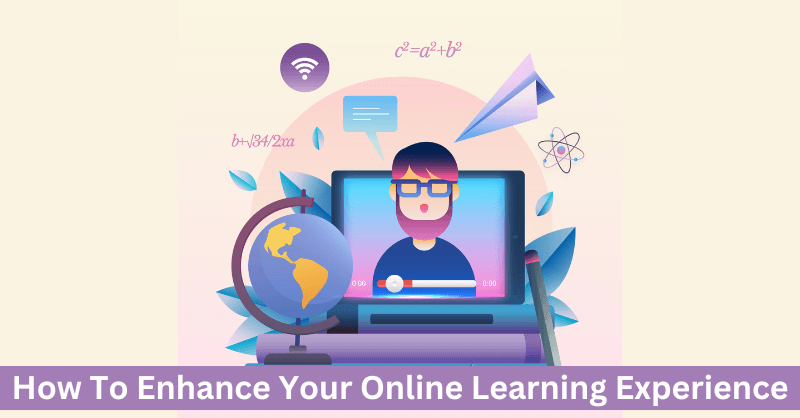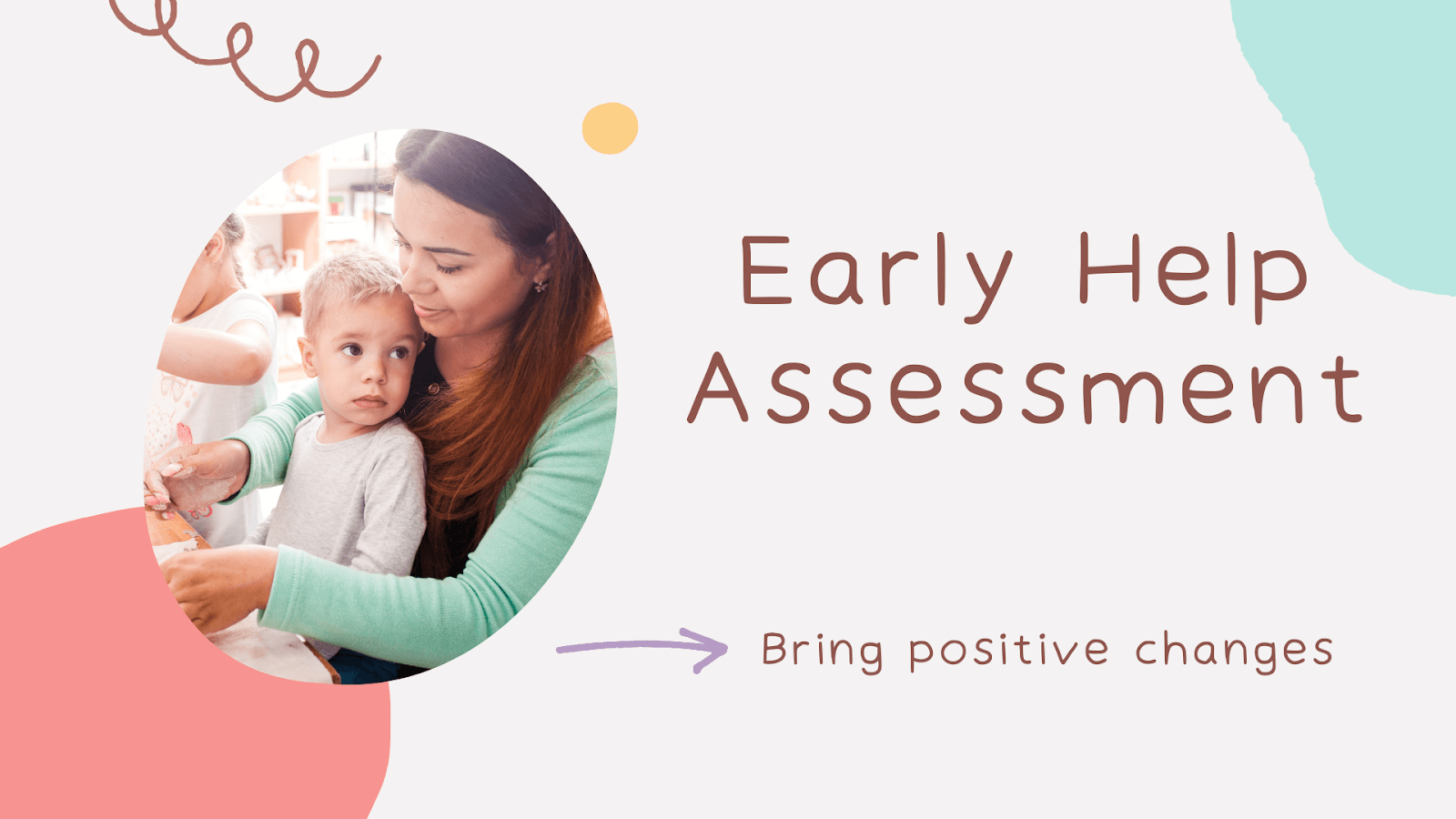In today’s connected world, education has been revolutionized by the advent of online learning. This modality offers unparalleled accessibility and flexibility, making learning possible anywhere and anytime. However, like any worthwhile endeavor, online learning comes with challenges that, if left unaddressed, can undermine its potential benefits.
That said, this guide will cover areas such as creating an ideal learning environment, honing critical digital skills, fostering discipline, and maintaining motivation amidst the virtual learning landscape.
So, whether you’re embarking on your first online course or seeking ways to boost your ongoing e-learning experiences, here are effective strategies that can help optimize your journey in online education.
1. Set Up Your Learning Environment
Establishing an appropriate environment for study is a critical factor in successful academic achievement. This should include a distraction-free and well-lit desk area. It should also have adequate storage space for relevant course materials and any other items needed for studying, such as textbooks, stationery, and reference material.
Having access to the right technology is also essential when it comes to online learning. A laptop or computer with sufficient processing power and memory will be necessary for coursework to run smoothly, while a reliable internet connection will help ensure assignments are submitted on time and communication with instructors occurs without issue.
Additionally, incorporating a Word to PDF converter into your online learning experience can be beneficial in various ways. Converting your documents from Word format to PDF can enhance the accessibility, compatibility, and professionalism of your learning materials.
2. Develop Effective Study Techniques
By developing effective study techniques, one can gain the necessary knowledge and skills to increase academic success. One way to do this is to break up large projects into smaller tasks that are easier to manage.
Additionally, creating a study plan is beneficial in preparing for assessments and staying organized throughout the learning process. Some strategies used during studying include taking notes consistently while reading, using acronyms for memorizing information, focusing on critical points, and summarizing material after reading or listening.
3. Manage Time Effectively
Adopting an effective time management strategy is vital to reaching goals and can help students maximize online learning opportunities. Establishing a regular schedule is essential for learners to stay organized and on track with their studies.
An online learner should also establish specific achievable goals and objectives within a given period. Setting realistic expectations from the start will allow learners to plan ahead without becoming overwhelmed by material, keeping them motivated throughout their coursework.
Effective communication with instructors is another way to manage time effectively while studying online. Keeping up-to-date with course announcements and regularly checking emails from professors will ensure that no task deadlines are missed due to confusion or miscommunication between the instructor and student.
4. Stay Engaged And Motivated
Staying engaged and motivated is vital to achieving success when pursuing online learning. Learners need to take ownership of their education by developing a plan, setting goals, and following through with those plans and goals.
Furthermore, learners can stay motivated by rewarding themselves for completing tasks. It could be something as simple as taking a short break after accomplishing a task or treating themselves to something special after completing an entire course.
Additionally, connecting with other students or professionals who are also studying may provide motivation and keep them on track. Sharing experiences and providing support can make the process much more enjoyable while reducing stress levels associated with online learning.
Participating in activities outside of coursework can also help maintain interest in online learning by providing an opportunity for relaxation and allowing time away from staring at a computer screen all day. This could range from participating in physical activities, such as running or yoga, to reading books or watching movies related to the subjects being studied, which help further knowledge acquisition.
5. Build A Supportive Network
Developing a supportive network of peers, mentors, and professionals can be an effective tool in improving the success of online learning. Connecting with experienced individuals within the industry or academic field can provide helpful advice and insight to help learners stay on track and understand complex concepts.
Engaging in discussions with classmates, colleagues, and experts in their respective fields helps to build knowledge through networking and collaboration. Additionally, these connections can open new opportunities for career advancement.
Proactively seeking resources is crucial in building a solid support system. Many educational institutions offer virtual study groups where students can connect while working on assignments or researching topics. Additionally, joining professional organizations related to relevant industry areas provides access to more experienced mentors willing to share their knowledge.
6. Leverage Multimedia Resources
Learners can enrich their knowledge and immerse themselves in a rich learning environment by leveraging multimedia resources. Multimedia resources enable online learners to access different types of media, such as videos, audio recordings, images, etc., which can be used effectively to expand the range of learning activities.
By incorporating multimedia resources into their learning experience, students can deepen their understanding by engaging with the material in multiple ways. For instance, they can watch visual demonstrations or listen to audio lectures instead of reading text-based materials.
Multimedia resources also allow learners to bridge the gap between abstract concepts and real-world applications. Through visual aids like diagrams or animations, students can better understand how theories apply in practice. This helps them develop practical skills that may otherwise be difficult to learn through traditional forms of instruction alone.
7. Enhance Digital Literacy Skills
Incorporating digital literacy skills into online courses can enable learners to understand the material better. Digital literacy effectively uses technology and media resources to access, evaluate, interpret, and create information. It should be part of an online curriculum as it helps students become proficient in using technology for educational purposes.
Integrating digital literacy into an online course should be done thoughtfully to be appropriate for the context and purpose. Additionally, providing detailed feedback on how well students are using their digital literacy skills can help them identify areas where they need further work or practice.
Instructors should also use existing tools and platforms available to enhance digital literacy skills within an online course. These include blogs, wikis, discussion forums, and other collaborative platforms that allow users to share ideas, communicate, and build upon one another’s knowledge base.
8. Balance Screen Time And Well-being
Balancing screen time with well-being is essential to ensure a healthy relationship between technology use and mental health. Too much screen time can lead to feelings of depression, isolation, and difficulty concentrating. It can also cause physical issues such as fatigue, eyestrain, headaches, and back pain.
On the other hand, too little screen time may limit opportunities for learning new skills or connecting with peers online. As such, finding a balance that meets everyone’s needs is essential.
One way to create this balance is by setting guidelines for digital use. These guidelines could include limiting overall daily usage or restricting certain activities at certain times of the day. For example, setting aside specific times of day when no technology will be used might help reduce stress levels and allow more time for activities that promote well-being, such as physical exercise or creative pursuits.
Taking stock of how technology contributes positively towards life goals can increase motivation while helping keep tech use within reasonable boundaries so that it does not interfere with daily activities or well-being in general.
9. Practice Self-Assessment And Evaluation
Through regular self-assessment and evaluation, one can understand how technology impacts their quality of life. This practice encourages self-reflection on how to optimize the use of digital tools and platforms for successful online learning. It includes taking periodic breaks from devices, limiting social media usage, being aware of the type and amount of content consumed, and reflecting on its impact on overall well-being.
Self-assessment and evaluation also help foster greater autonomy in decision-making by allowing users to evaluate their progress and establish goals tailored to individual needs. Through this process, users can become more mindful of their engagement with digital technologies when studying or working online. By taking responsibility for tracking personal performance, they can gain insight into areas that need improvement or require a shift in focus.
10. Expand Your Knowledge Beyond Course Materials
Acquiring knowledge beyond the course materials can foster a deeper understanding of the subject, resulting in greater confidence and self-efficacy. Expanding one’s knowledge base can include exploring resources such as blogs, podcasts, and videos for further insight into specific topics or skills discussed in class.
Practicing these techniques will help develop a well-rounded view of the subject matter and equip students with strategies to stay up-to-date on changes in their field of study. By seeking out additional information and engaging with others, learners can gain new insights that will help them become more knowledgeable about their chosen area of study.
11. Manage Online Learning Challenges
One of the most common challenges in online learning is staying motivated and engaged with the material. Without a physical class setting, learners may find it challenging to focus on coursework. Additionally, learners should seek out resources related to course topics that are interesting or enjoyable since this can motivate them while learning new information.
Sometimes, completing assignments or studying for assessments can be daunting when working alone online. In order to overcome this difficulty, students should create study groups with peers who are also enrolled in the same courses or studying similar topics.
Furthermore, tutoring services may be available depending on the institution providing instruction; these services could offer additional assistance and feedback on assignments before submission deadlines arrive.
12. Nurture Self-discipline And Accountability
Self-discipline and accountability are essential components of successful online learning. Establishing a routine and setting realistic goals can help learners stay motivated. It’s vital to create a daily schedule that includes both study time and breaks, as well as tasks related to the course and those necessary for its completion.
Having an accountability partner or support group can also be beneficial in staying organized and productive when learning online. A support network allows individuals to share experiences, exchange resources, provide motivation, challenge one another’s ideas, offer feedback, collaborate on projects, and more.
Creating habits that encourage self-reflection is crucial for maintaining focus while learning online. Taking regular notes during lectures or classes helps keep learners engaged with the material while providing an opportunity to review concepts later. Using available tools such as quizzes or practice tests is another way for students to measure their understanding of course content while providing timely feedback they can apply during their next study session.
13. Adapt To Different Learning Styles
Adapting to different learning styles is essential for successful online learning. There are three common types of learning styles: visual, auditory, and kinesthetic. Visual learners absorb information by seeing images and reading words; auditory learners learn best by listening to lectures or conversations; and kinesthetic learners need hands-on activities to understand a concept fully. To maximize your success in an online course, you must recognize your learner type and adjust your study materials accordingly.
When studying for an online class, it’s beneficial to use multiple sources that can reach out to all three types of learners. For example, if you are a visual learner, find diagrams or videos that can help explain the material you are studying; for auditory learners, using podcasts or audio recordings may be helpful; and those who prefer the kinesthetic approach should look for interactive activities, such as simulations or experiments related to the topic being studied.
Finding a combination of resources that works best for you will ensure success with online courses, no matter what type of learner you may be. This will boost motivation levels while studying and lead to increased engagement within the course and a better understanding of the material covered.
14. Track And Celebrate Your Progress
Tracking and celebrating progress throughout the online course incentivizes further engagement and understanding of the material. It also helps identify areas where more effort may be needed to ensure a strong understanding of specific topics or skill sets before moving on to new ones.
Additionally, setting up smaller benchmarks along the way provides learners with a sense of accomplishment that can be invaluable in helping them stay motivated while taking an online class. In this way, tracking and celebrating progress is essential for ensuring success while engaging in online learning activities.
Key Takeaway
Using the right tools and techniques makes navigating online learning a fulfilling and enriching experience. With the abovementioned strategies, you can create a conducive learning environment, enhance your digital skillset, and stay motivated.
However, keep in mind that everyone’s e-learning journey is unique, so be patient, resilient, and open to experimentation. Embrace the flexibility and autonomy of online education to shape your path towards knowledge and skill acquisition. As you continue to evolve within this digital landscape, you may find educational achievement and the joy of learning in this modern, dynamic setting.







 June 02, 2023
June 02, 2023








